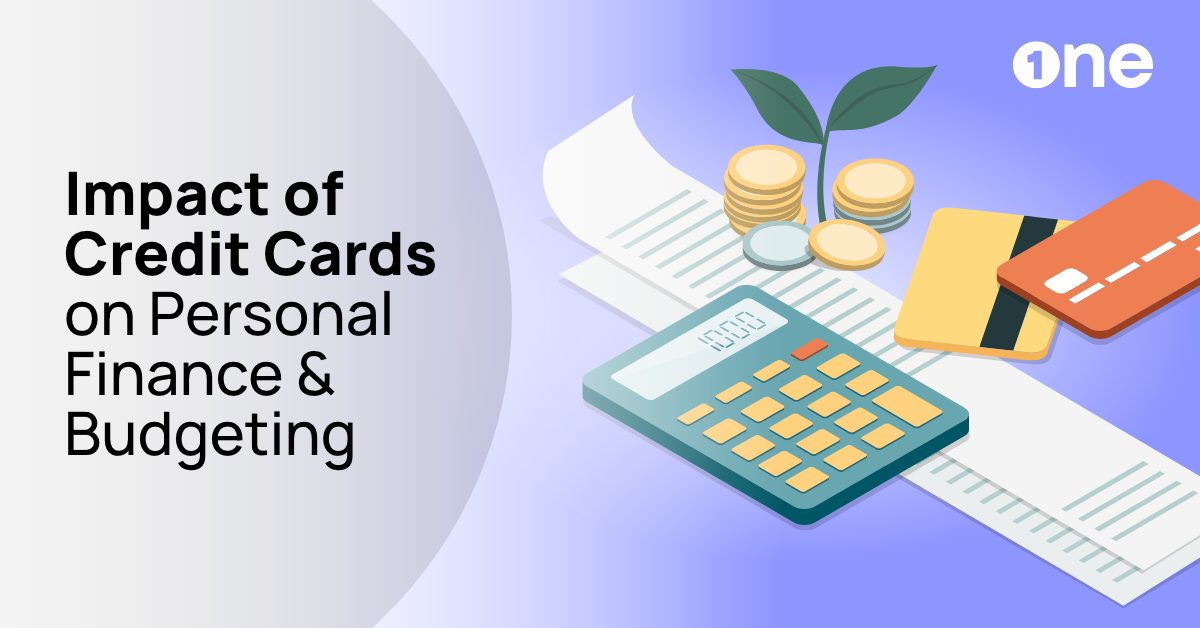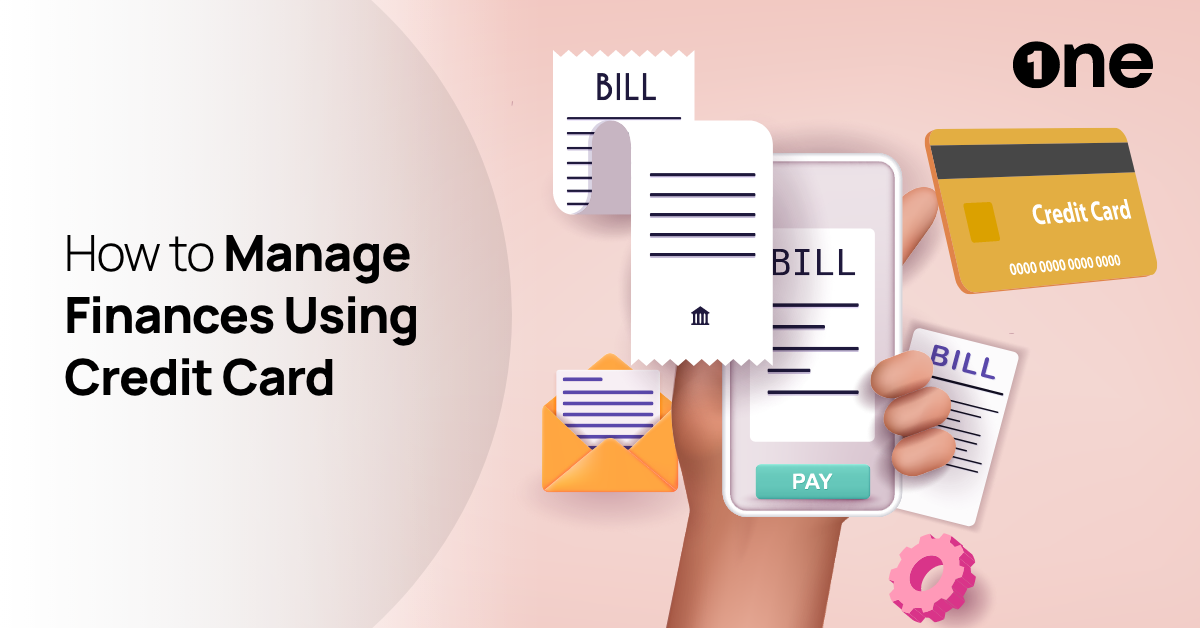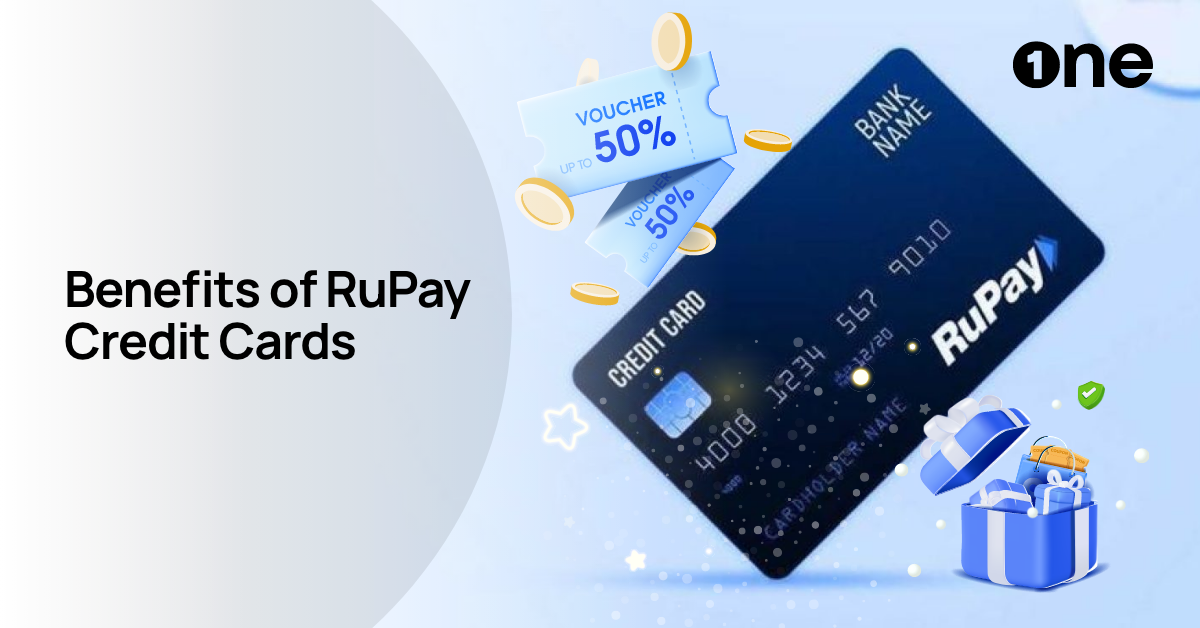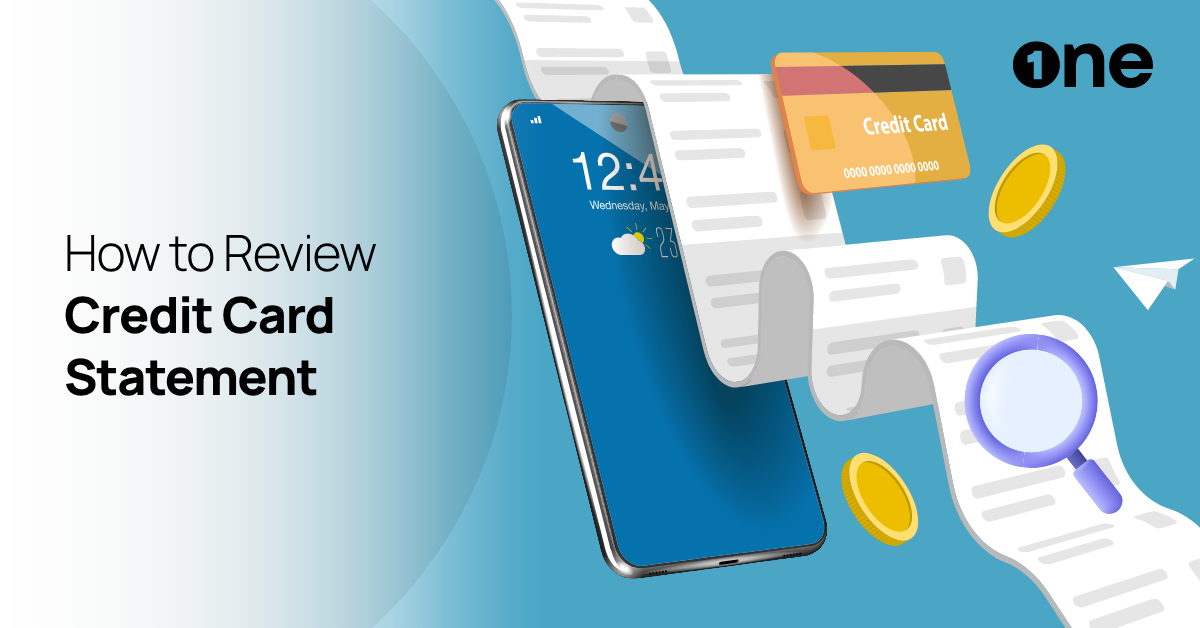Impact of Credit Card on Personal Finance and Budgeting
By OneCard | June 04, 2024

The surge of digitalisation in India has significantly influenced personal finance, with credit cards playing a profound role in the way people transact. Credit cards are no longer a luxury; they’ve become a go-to option for many due to the unparalleled convenience and financial flexibility they offer. This comprehensive guide will discuss how credit cards can help you manage your finances better. So, let’s get started.
Table of contents:
The surge of digitalisation in India has significantly influenced personal finance, with credit cards playing a profound role in the way people transact. Credit cards are no longer a luxury; they’ve become a go-to option for many due to the unparalleled convenience and financial flexibility they offer. This comprehensive guide will discuss how credit cards can help you manage your finances better. So, let’s get started.
Advantages of Using Credit Cards
Here are the multiple benefits of using this powerful financial tool:
-
Financial flexibility: One of the top credit card benefits is the financial freedom it offers. Imagine turning expenses into opportunities for savings and rewards. Instead of fretting about immediate liquidity, credit cards rescue users, enabling them to address the situation promptly and pay for it conveniently.
-
Building CIBIL score: A credit card isn’t just about spending; it’s also a tool to establish financial identity. Regular and timely payment of your credit card bills paints a picture of financial responsibility. This behaviour positively impacts your CIBIL score, a metric that banks and financial institutions rely on when determining your creditworthiness. A higher CIBIL score can pave the way for favourable loan interest rates and easier approval for other credit products, such as car loans and home loans.
-
Earning reward points: With each swipe, users accumulate points, which can be redeemed for various perks over time, ranging from dining vouchers to electronic gadgets. This credit card reward point system adds value to the money spent, enhancing the user experience.
-
Additional protection: In today’s world, having a layer of protection is always welcome. Many credit cards come equipped with insurance covers, safeguarding users from potential travel mishaps, accidental damages to purchased items, or even theft cases.
-
Exclusive discounts: Many credit card companies tie up with retail brands and service providers to offer exclusive deals to customers. As a result, cardholders benefit from exclusive offers, discounts, and promotional schemes. Whether it’s a significant discount on a new gadget, a buy-one-get-one-free deal at your favourite restaurant, or early access to online sales, the advantages of having a credit card are unending.
Credit Cards vs. Cash: Which is Better for Budgeting?
The debate between credit cards and cash has been ongoing for a while. Both have their merits, and your credit card application choice might depend on the specific scenario or personal preference. However, when it comes to budgeting and efficient financial management, credit cards bring certain undeniable advantages to the table:
-
Easier tracking: Every time you swipe or tap your card, the electronic statement records the transaction. You can easily glance through your credit card statements, gain insights into your spending habits, and identify areas where expenses might go astray. This systematic approach helps you follow your budget and avoid overspending.
-
Safety: There’s an inherent risk associated with carrying large amounts of cash. Whether you’re travelling, shopping, or even going about your daily chores, the threat of theft or misplacement looms large. Credit cards eliminate this worry. They can be easily blocked even if lost, ensuring your funds remain secure.
-
Extended payment period: Cash demands an immediate outflow, whereas credit cards grant users a grace period. This interest-free window, which may last up to 50 days, offers cardholders ample time to manage their finances, ensuring they have the required funds by the payment due date.
-
Liquidity: Financial emergencies are unpredictable. There might be instances where cash reserves are low, yet immediate expenses can’t be deferred. Here, credit cards shine, offering instant liquidity.
-
Budgeting tools: Modern credit cards have become more than just spending aids. Many now come with integrated budgeting tools. These digital companions assist cardholders in setting monthly budgets, sending alerts on overspending, and even providing category-wise spending breakups. Such features empower users, facilitating informed financial decisions.
How Credit Cards Influence Spending Habits
Credit cards undoubtedly influence our spending habits. Here’s how:
- Ease of Spending: The straightforward swipe-and-go nature of credit cards makes spending effortless, reducing the immediate impact on personal finances.
- Psychological Distance: The absence of physical cash transactions can create a psychological barrier, leading to impulsive and unplanned purchases.
- Financial Flexibility: The availability of credit lines provides financial flexibility, encouraging individuals to purchase beyond their immediate means.
- Incentives and Rewards: Credit card perks, such as reward programs, cashback offers, and discounts, entice users to spend more in pursuit of benefits, potentially altering spending behaviour.
- Responsible Practices: Setting budget limits, tracking expenses, and paying balances in full are essential practices to mitigate negative impacts, and credit cards should be used as convenient tools rather than sources of financial stress.
Credit Card Debt: Understanding the Impact
While credit cards offer immense benefits, unchecked usage can lead to pitfalls:
- Accumulating interest: Unpaid bills attract interest, which may lead to rising credit card debt.
- Impact on CIBIL score: Missing timely payments or maxing out credit cards can negatively affect the CIBIL score.
- Debt spiral: Paying less than the total due for a long time can lead to a vicious cycle of debt.
- Temptation of rewards: The lure of accumulating credit card reward points can encourage spending, even if unnecessary.
- Delayed pain of payment: Since the bill comes later, one might overlook the total expenses until the bill arrives.
Credit Card Rewards and How They Help You Stick to Budget
Credit card rewards play a pivotal role in a credit card’s appeal:
- Discounts: Some cards offer discounts on purchases, effectively reducing the cost of items.
- Redeemable points and cashback: Accumulated points can be redeemed for gifts, vouchers, cashback, or even flight tickets, enhancing your budget.
- Loyalty programmes: Loyalty to a brand or service can fetch exclusive deals and offers.
- Fuel surcharge waivers: Cards like One credit card offer fuel surcharge waivers for those who frequently drive, leading to huge savings.
Setting a Budget with Credit Cards in Mind
These are some of the ways in which you can use your credit card for budgeting.
- Set a spending limit: Just because there’s a high credit limit doesn’t mean one should exhaust it. Setting a personal spending cap can prevent overspending.
- Regularly monitor statements: Keeping a tab on the statement can provide insight into spending habits, helping tweak the budget.
- Use cards for planned expenses: Cards for planned monthly expenses can help manage the budget and earn reward points.
- Avoid impulse purchases: Cards’ convenience can lead to impulse buying. Avoiding this can keep the budget in check.
- One Credit Card Card Spends Planner: The One Credit Card Spends Planner streamlines credit card expense management with personalised budgets, detailed spending insights, and timely alerts for budget adjustments. It also introduces category-wise spending plans, enhancing control over expenditures for a more responsible credit card usage experience.
Conclusion
While the impact of credit cards on personal finance can be both positive and negative, by making informed decisions and with disciplined usage, credit cards can be a boon for many. They offer flexibility, rewards, and a sense of security. Nevertheless, it’s essential to stay vigilant about potential pitfalls and exercise prudent financial management.
**Disclaimer: The information provided in this webpage does not, and is not intended to, constitute any kind of advice; instead, all the information available here is for general informational purposes only. FPL Technologies Private Limited and the author shall not be responsible for any direct/indirect/damages/loss incurred by the reader for making any decision based on the contents and information. Please consult your advisor before making any decision.



Sharing is caring 😉